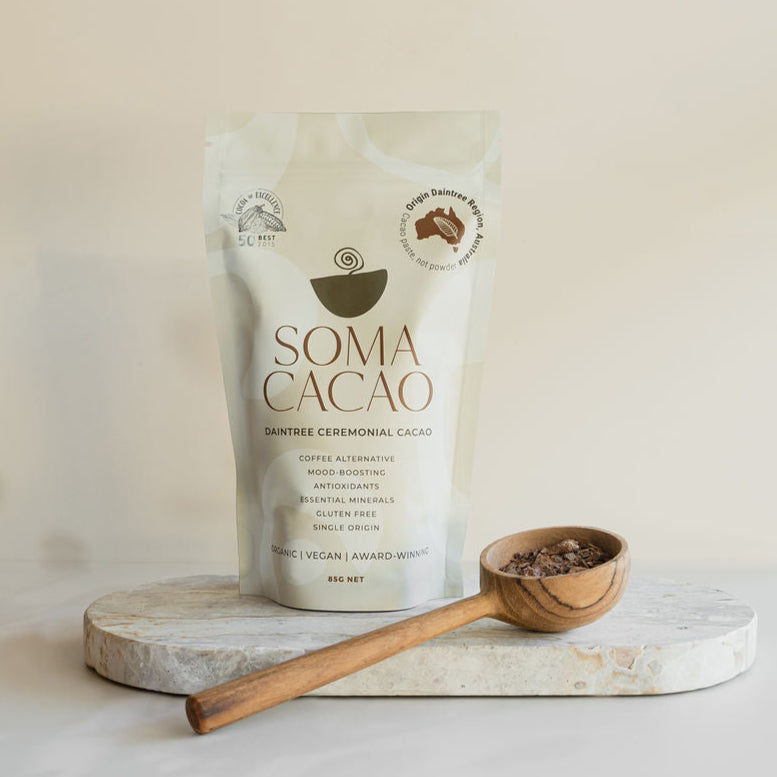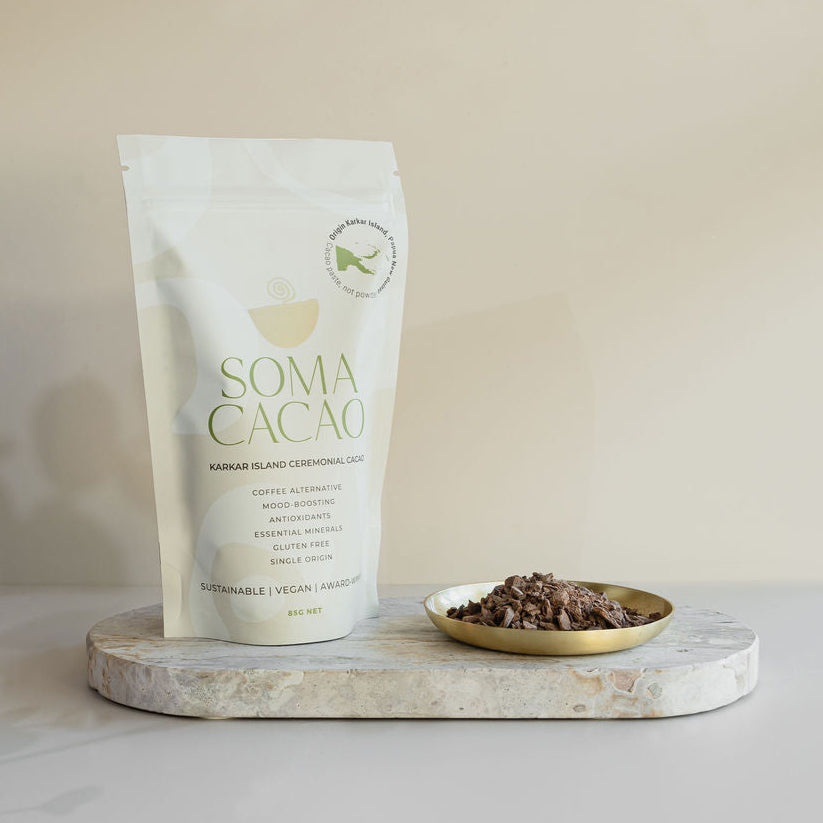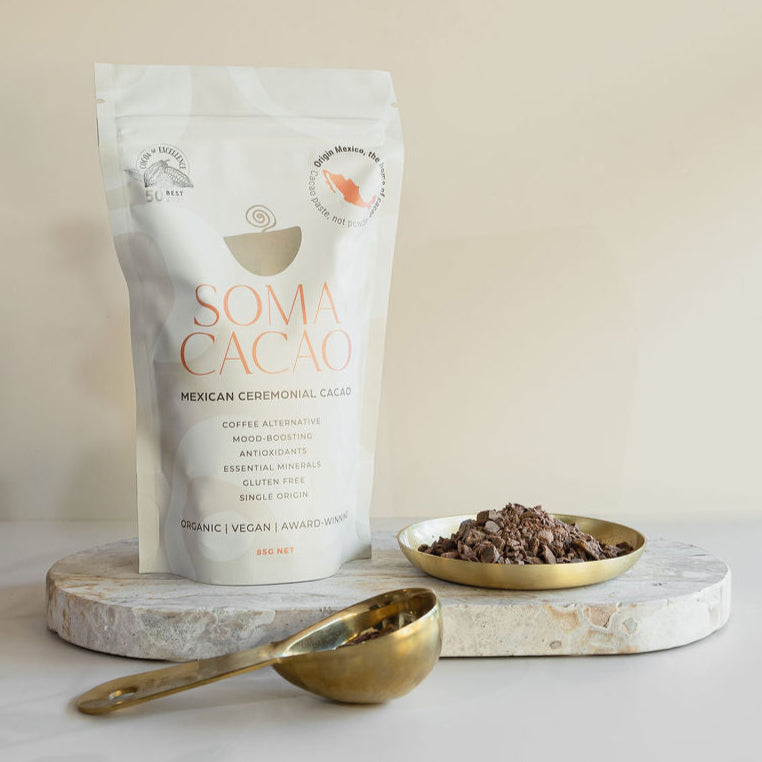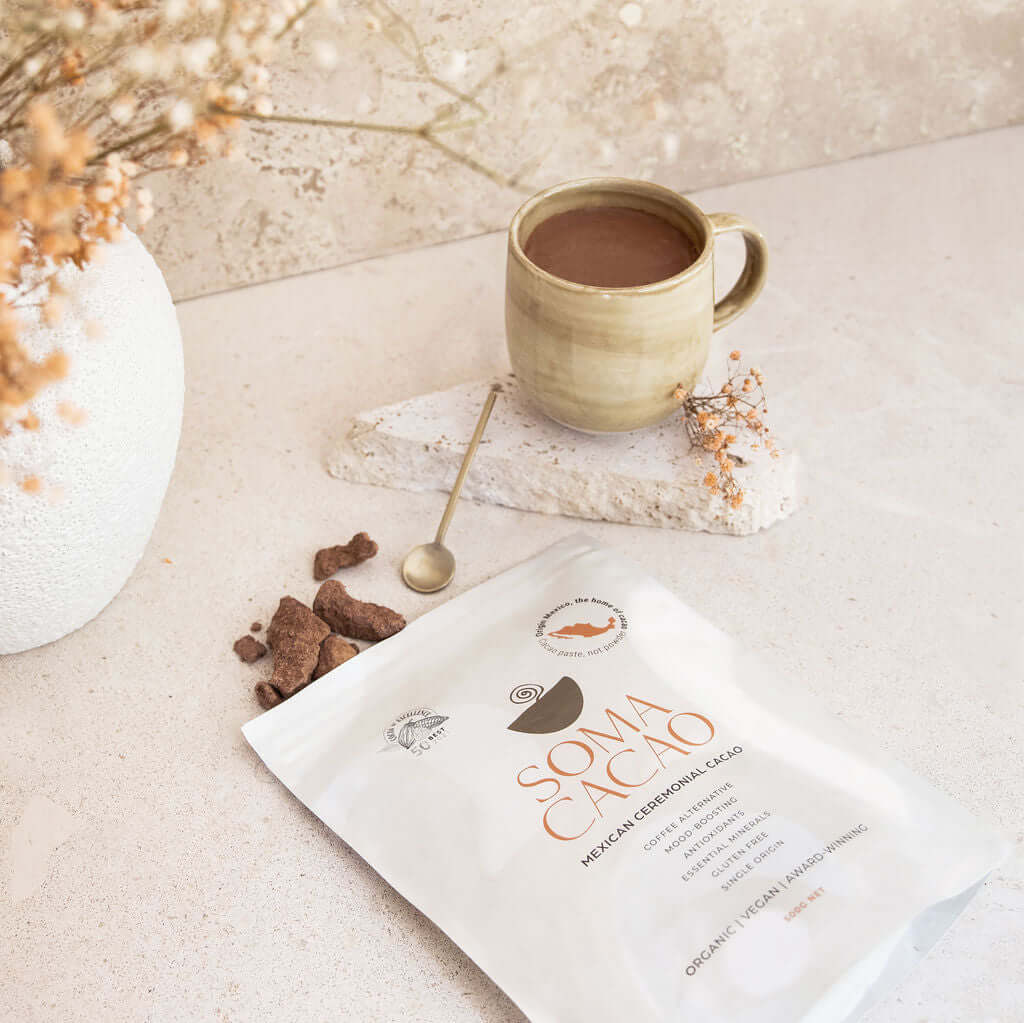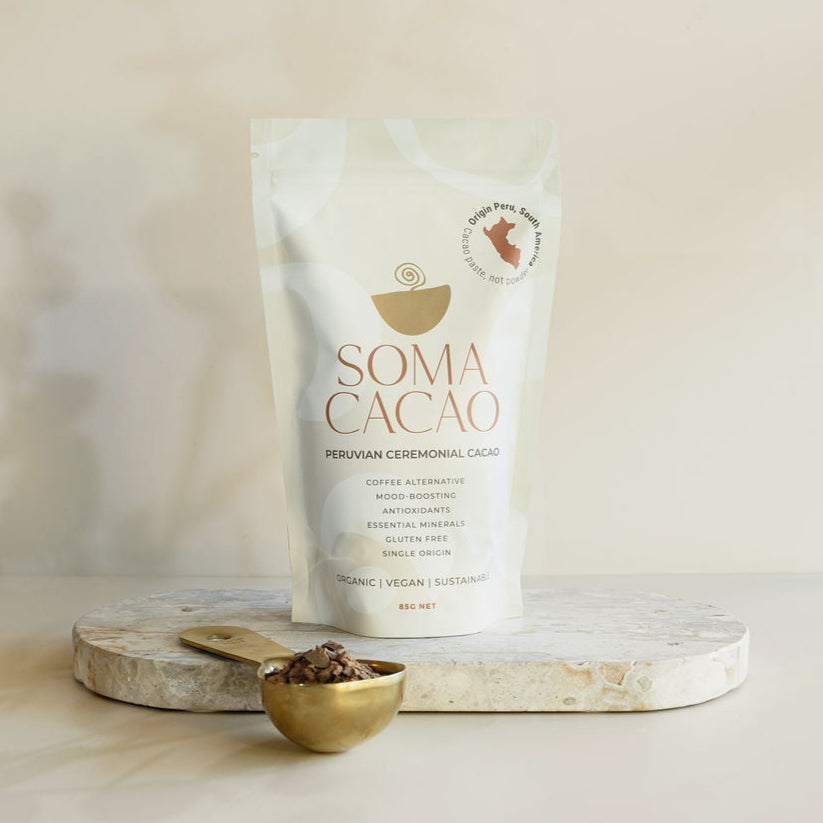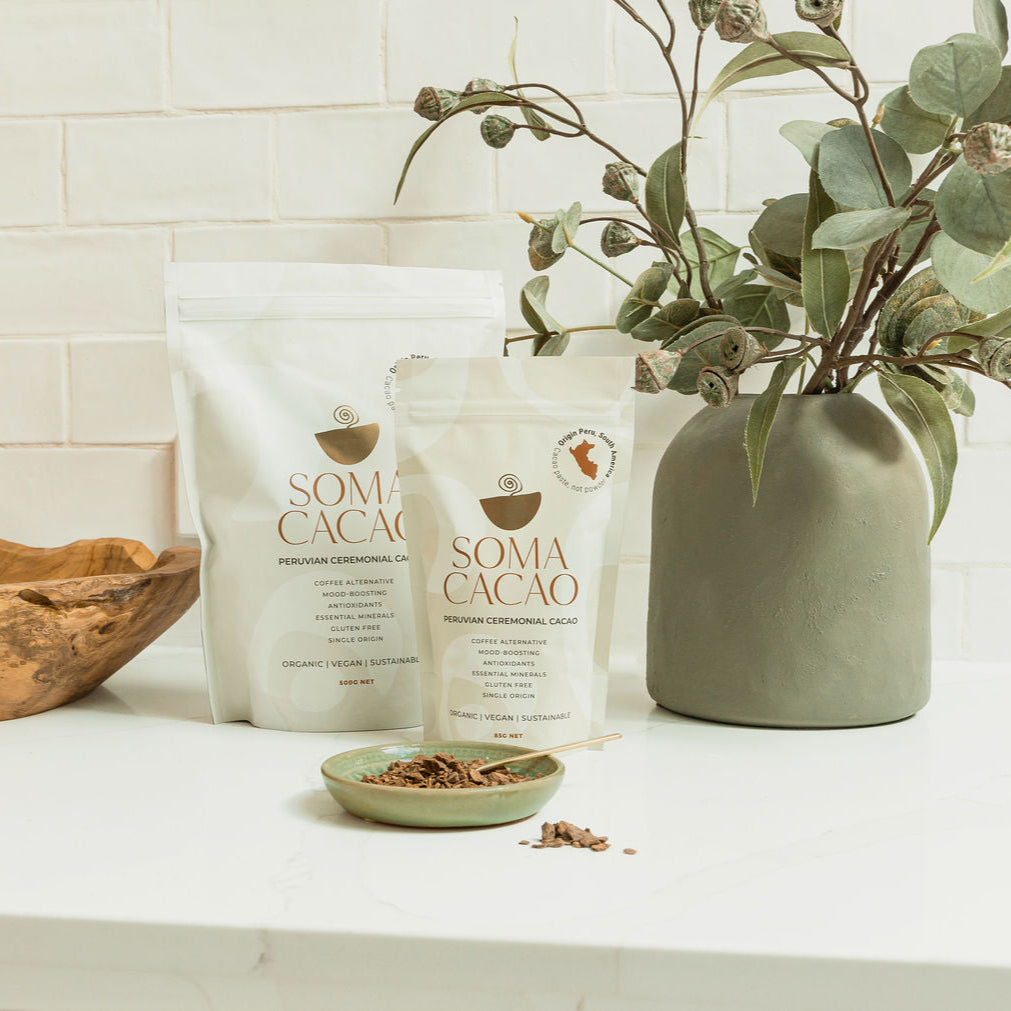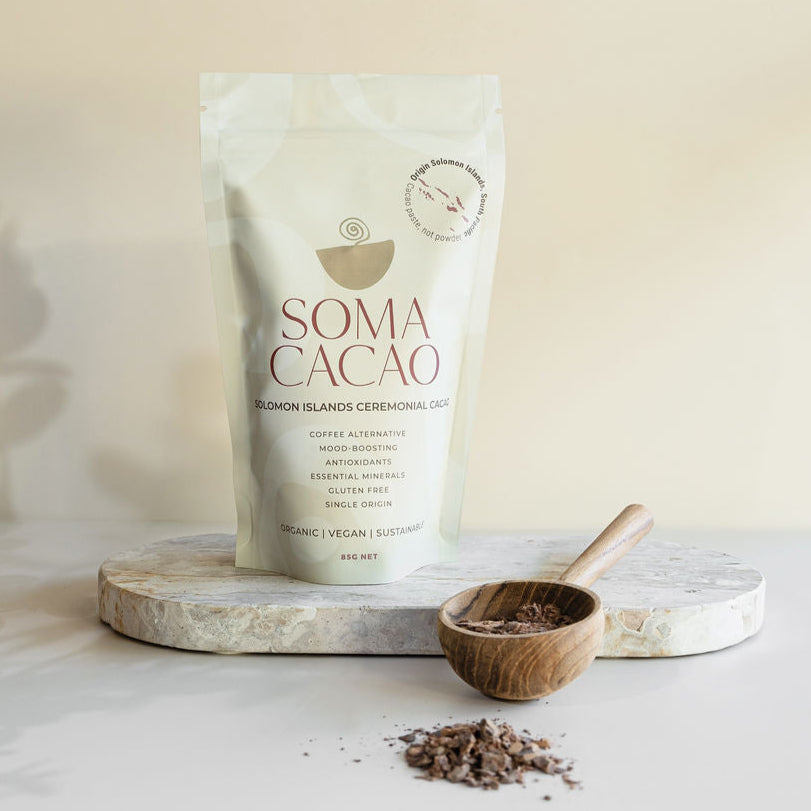7 Reasons Why Magnesium Matters (and how cacao can help)
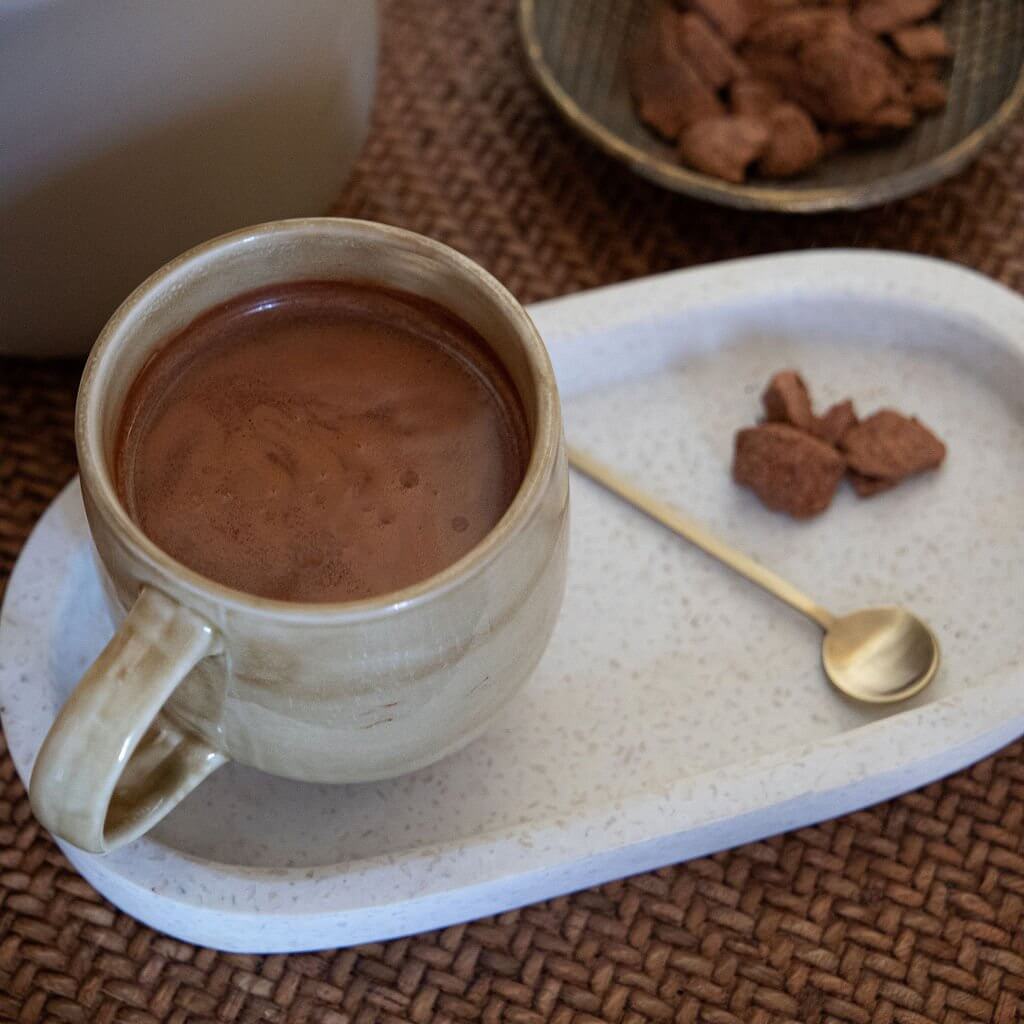
There are a lot of epic superfoods out there. But the more we learn about cacao, the more we think there’s an excellent case for a new classification—a super-duper food?!
Cacao is one of the most nutrient-dense, chemically complex foods on the planet. Whatever way you look at it, the Mayans appear to have had it right when they proclaimed it was gifted to them by the gods (or by nature, by the divine… whatever concept rings true for you).
We’ve mentioned antioxidants and cacao’s amazing cardiovascular stimulant, theobromine. We’ve also touched on some of its psychoactive compounds.
Today, we’d like to revisit magnesium ♥️.
Chronically deficient in our western diet, magnesium is essential for a whole host of bodily and mental processes. It keeps us calm, energized, and happy, and can lower blood pressure, combat migraines, and help with PMS. (So it alllll makes sense that chocolate cravings seem to hit at that time of the month.)
Cacao is the highest plant-based source of magnesium with 499 mg per 100 g.
Here’s the lowdown on why magnesium is so important (and why this gives us even more reason to incorporate cacao into our daily lives 😉).
1. MAGNESIUM ENHANCES BRAIN PLASTICITY
Brain plasticity, also known as neuroplasticity, is the brain’s ability to reorganize and form new neural connections throughout life. Magnesium supports this process by promoting the activity of N-methyl-D-aspartate (NMDA) receptors in the brain, which are critical for learning and memory. Increased brain plasticity means improved learning, memory retention, and adaptability to new information.
2. MAGNESIUM BOOSTS ATHLETIC PERFORMANCE
During exercise, magnesium plays a crucial role in muscle contraction, oxygen uptake, and electrolyte balance. Studies have shown that magnesium deficiency leads to decreased muscle endurance and increased oxygen consumption during physical activity. Magnesium also helps to clear lactate—a byproduct of strenuous exercise that causes fatigue—from muscles, thereby enhancing overall athletic performance.
3. MAGNESIUM HELPS FIGHT DEPRESSION
Magnesium is vital for neurotransmitter function, including serotonin, which regulates mood and emotional well-being. Deficiencies in magnesium have been linked to altered brain chemistry and depression. Several studies have shown that magnesium supplementation can lead to significant improvements in depressive symptoms, and diets high in magnesium-rich foods, such as cacao, may serve as a natural antidepressant.
4. MAGNESIUM LOWERS BLOOD PRESSURE
Clinical research has demonstrated that magnesium has vasodilatory properties, meaning it helps to relax blood vessels, improving circulation and reducing hypertension. A meta-analysis of over 34 clinical trials concluded that increased magnesium intake was associated with significant reductions in both systolic and diastolic blood pressure, making it a key component for cardiovascular health.
5. MAGNESIUM REDUCES INFLAMMATION
Inflammation is a key driver of many chronic diseases, including heart disease, diabetes, and arthritis. Magnesium has anti-inflammatory properties that are essential for regulating the body’s inflammatory response. Research indicates that individuals with low magnesium intake often show elevated levels of C-reactive protein (CRP), a marker of inflammation. By increasing magnesium intake, it’s possible to mitigate these inflammatory markers, thereby reducing the risk of chronic disease.
6. MAGNESIUM HELPS PREVENT MIGRAINES
Migraine sufferers often have lower levels of magnesium, and clinical studies suggest that magnesium supplementation can significantly reduce the frequency and intensity of migraine attacks. Magnesium is believed to prevent the constriction of blood vessels in the brain and stabilize the release of pain-causing neurotransmitters. Foods rich in magnesium, such as cacao, can offer natural protection against migraines.
7. MAGNESIUM IMPROVES PMS SYMPTOMS
Premenstrual syndrome (PMS) affects millions of women and is characterized by mood swings, bloating, and other discomforts. Studies have found that magnesium can reduce water retention, improve mood by regulating serotonin levels, and alleviate muscle cramps. By incorporating magnesium-rich foods like cacao into the diet, women may experience a natural reduction in PMS symptoms.
Reference List
- Barbagallo, M., & Dominguez, L. J. (2010). Magnesium and aging. Current Pharmaceutical Design, 16(7), 832-839. doi:10.2174/138161210790883738
- Gröber, U., Schmidt, J., & Kisters, K. (2015). Magnesium in prevention and therapy. Nutrients, 7(9), 8199-8226. doi:10.3390/nu7095388
- Jahnen-Dechent, W., & Ketteler, M. (2012). Magnesium basics. Clinical Kidney Journal, 5(Suppl 1), i3-i14. doi:10.1093/ndtplus/sfr163
- Nielsen, F. H. (2018). Magnesium deficiency and increased inflammation: Current perspectives. Journal of Inflammation Research, 11, 25-34. doi:10.2147/JIR.S136742
- Ristow, M., & Zarse, K. (2010). How increased oxidative stress promotes longevity and metabolic health: The concept of mitochondrial hormesis (mitohormesis). Experimental Gerontology, 45(6), 410-418. doi:10.1016/j.exger.2010.03.014
- Tarleton, E. K., & Littenberg, B. (2015). Magnesium intake and depression in adults. Journal of the American Board of Family Medicine, 28(2), 249-256. doi:10.3122/jabfm.2015.02.140191
- Zeng, C., Li, H., Wei, J., Yang, T., Deng, Z. H., Yang, Y., ... & Lei, G. H. (2015). Association between dietary magnesium intake and C-reactive protein levels in the US adult population. Journal of Human Nutrition and Dietetics, 28(3), 339-345. doi:10.1111/jhn.12252
- Tags: Health Mental Health
0 comments



















